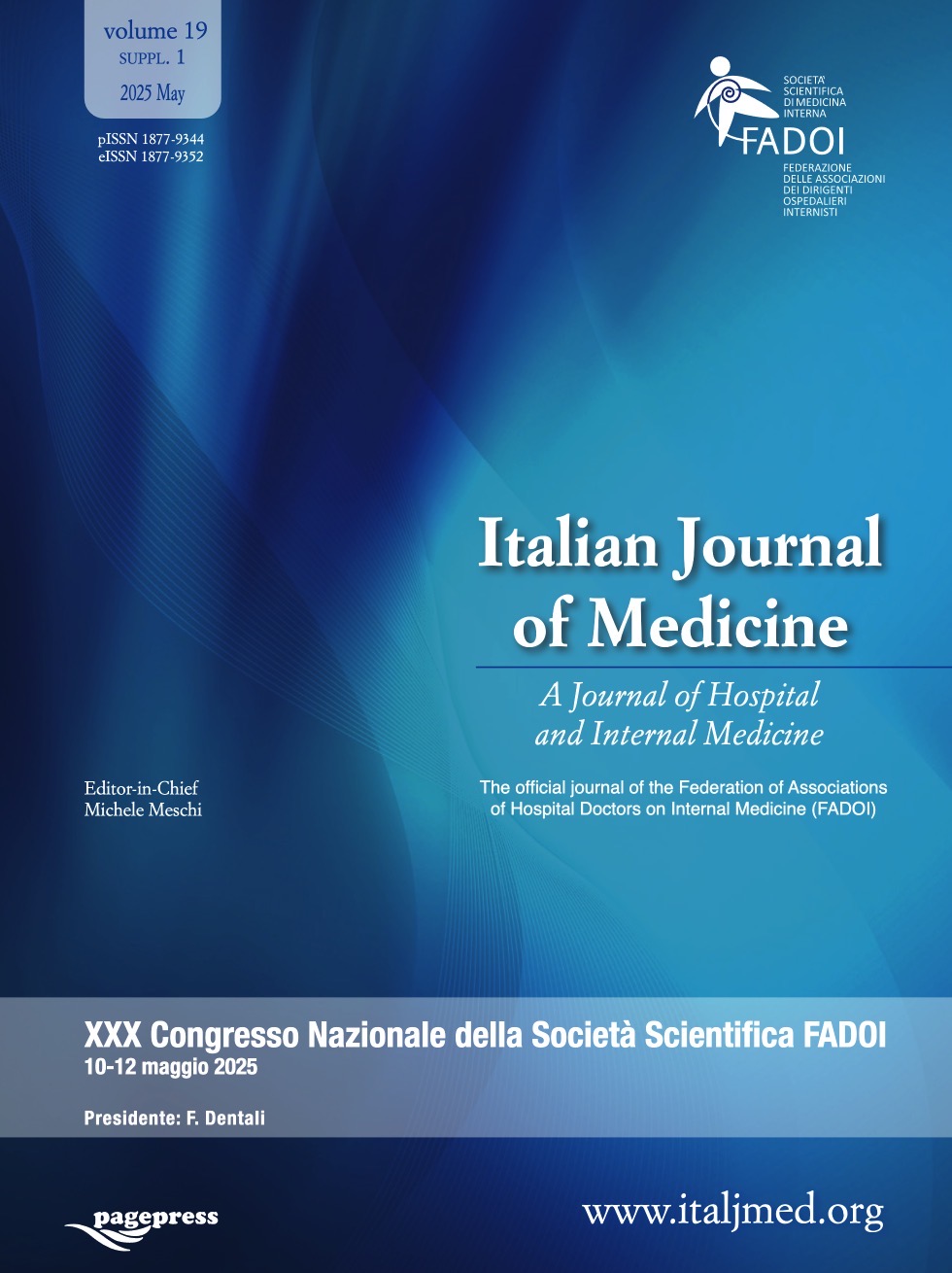XXX FADOI Italian Congress | 10-12 May 2025
Vol. 19 No. 1(s1) (2025): XXX FADOI Italian Congress | 10-12 May 2025
P53 | Use of monoclonal antibodies in pregnant women infected by COVID-19
P. Crispino1, R. Marocco2, D. Di Trento2, G. Guarisco1, B. Kertusha2, A. Carraro2, C. Pane3, L. Di Troia3, C. Del Borgo2, M. Lichtner4 | 1UOC Medicina Interna, Ospedale Santa Maria Goretti, Latina, 2UOC Malattie Infettive, Ospedale Santa Maria Goretti, Latina, 3UOC Ostetricia e Ginecologia, Ospedale Santa Maria Goretti, Latina, 4Dipartimento di Area Medica, Ospedale Santa Maria Goretti, Latina, Italy
Publisher's note
All claims expressed in this article are solely those of the authors and do not necessarily represent those of their affiliated organizations, or those of the publisher, the editors and the reviewers. Any product that may be evaluated in this article or claim that may be made by its manufacturer is not guaranteed or endorsed by the publisher.
All claims expressed in this article are solely those of the authors and do not necessarily represent those of their affiliated organizations, or those of the publisher, the editors and the reviewers. Any product that may be evaluated in this article or claim that may be made by its manufacturer is not guaranteed or endorsed by the publisher.
Published: 26 August 2025
79
Views
0
Downloads







